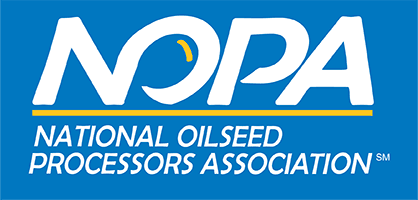Used Cooking Oil & Imported Feedstocks
- NOPA members have been building capacity to process domestic row crops into biofuel feedstocks in line with state and federal renewable fuel provisions and related tax provisions (i.e. IRA). NOPA members – and new entrants into the soy processing sector — have announced plans to invest approximately $6 billion to expand U.S. crushing capacity by nearly 30% relative to 2023 installed capacity.
- Increasingly, however, domestic biodiesel fuel producers are preferring imported foreign waste feedstocks such as Used Cooking Oil (UCO) and tallow.
- In fact from Jan.1 2023 to June 30, 2024, the US imported a total of 7.9 billion pounds of UCO and tallow. Those 7.9 billion pounds of imported feedstocks equates to the soybean oil crushed from an equivalent of over 650 million bushels. NOPA members crush approx. 2 billion bushels annually.
WHY IS THIS HAPPENING?
- Low carbon intensity feedstocks generate credits in the California Low Carbon Fuel Standard (LCFS) namely, waste feedstocks such as UCO, beef tallow and yellow grease are more valuable.
- Once the 45Z tax credit is in effect Jan 1, 2025, biofuel producers will have added incentive to buy imported feedstocks, unless the issue is fixed.
- Under the 40B guidance sustainable aviation fuel (SAF) produced from waste feedstocks (either imported or domestic) are slated to receive approximately $1.85/gallon credit, while SAF produced from soybean oil will receive approximately $0.60/gallon less (a 32% disadvantage for the soy supply chain).
NOPA POSITION
- Restrict the 45Z tax credit to domestic feedstocks for domestic fuel production as the law intended.
- While we support free trade and open markets, we do not believe foreign feedstocks should benefit on the backs of U.S. taxpayers to the detriment of U.S. farmers. Without this fix, the 45Z credit will incentivize the use of foreign feedstocks over feedstocks produced by U.S. suppliers.

